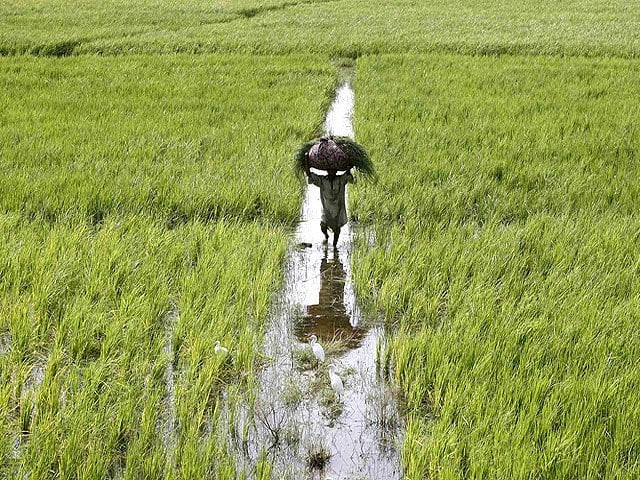Climate crisis casts a shadow over K-P's agriculture sector
Yield of fruits, vegetables and whole grains has undergone a sharp decline across several crop producing areas of K-P

Apart from their breathtaking landscape and picturesque sceneries, Pakistan’s northern areas are well known for producing some of the country’s finest variety of fruits and vegetables. In recent times however, the drastic changes in Khyber Pakhtunkhwa's (K-P) weather conditions and rainfall rate have come as a bolt from the blue for its agriculturalists, who rely heavily on farming for sustaining their livelihoods.
Nawab Khan is one such farmer from the Utmanzai district of Charsadda, who has been harvesting sugarcane and strawberry crops since the past 13 years. This year however, a severe scarcity of water due to a lack of adequate rainfall significantly reduced his crop yield. “My strawberry crop yield had declined by almost 50 per cent in March last year while the sugarcane crop also faced a similar drop in yield from November onwards,” resented Khan, who further claimed that the number of people associated with farming in Charsadda had reduced to half given the changing weather conditions and declining profitability of the profession.
Similarly, Nisar Chacha, who has been cultivating carrots in the Utmanzai area for the past 10 years, also worried about the sudden changes in rainfall and weather conditions. “Over the past five years, water scarcity has caused the cost of producing carrots to increase by five to 10 times,” regretted Nisar, who disclosed that a similar quandary was plaguing the orange production zones in Manki Sharif, Pir Piai and Ziarat Kaka Sahib located in the Nowshera district of K-P.
Read more: K-P to launch skills initiative for youth
Confirming Nisar’s speculation, Shafiq Khan, an orange farmer from Ziarat Kaka Sahib told the Express Tribune that the growing scantiness of rainfall had significantly impacted the quantity and quality of his produce. “Blood oranges require ample rainwater during the harvest period, in order to develop their natural juiciness and sweetness. Unfortunately, the lack of rainfall has not only reduced our yield by 30 per cent but has also ruined the distinctive zesty flavour of our oranges,” expressed Khan.
Apart from blood oranges, several districts like Kohat and Hingo are also fairly famous for producing a splendid variety of guavas. However, just like the other citrus fruits, these too have observed a downward trend in production.
“Premature rains and scarcity of rainfall have greatly shortened the guava production season in Kohat. Furthermore, the little guava that is produced tastes no way near what it used to taste like,” said Nimroz, a guava farmer, who also claimed that wheat production in Lower Chitral had also been hampered.
“In case there is no rainfall in the upcoming few days, there is a high risk of the wheat drying up, which will cause immense trouble to the local people,” warned Saud, a farmer from Drosh in Chitral.
According to Dr Farida Anjum, a researcher working as an agriculture officer for the Department of Agriculture K-P, extreme heat during summers, and changing weather conditions during winters had definitely posed a new challenge to the agriculture sector “Such challenges can be better tackled through measures taken at the local, regional and national levels,” she opined.
Speaking to the Express Tribune on the impact of climate change on crop production and quality in Khyber Pakhtunkhwa, Dr Attaur Rahman, an agronomist and climatologist said, “Usually, cold winds enter Pakistan from the Central Asian countries through Afghanistan during winters, triggering a spell of seasonal rainfall. This year, however, we only had the smog season and very little rainfall was recorded. All relevant departments are working together towards tackling climate change in the province, but due to a lack of coordination, the problem remains unresolved.”



















COMMENTS
Comments are moderated and generally will be posted if they are on-topic and not abusive.
For more information, please see our Comments FAQ